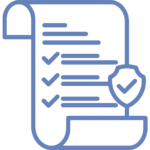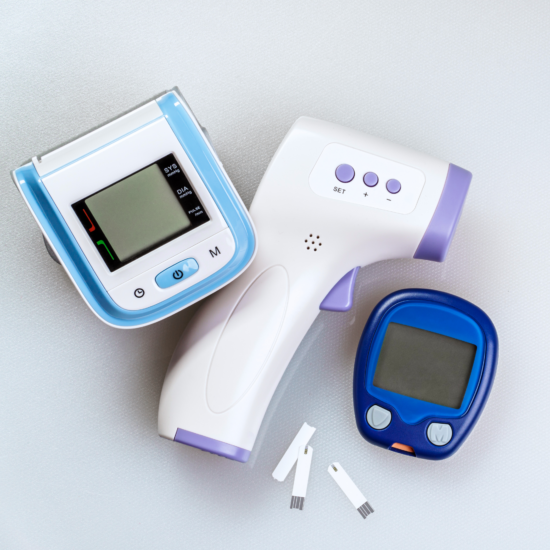FDA’s QMSR Recognising ISO 13485:2016: A New Era for MDR
Published Jul 25, 2024
Published 18th April 2024

Artificial intelligence (AI) is rapidly being integrated into all walks of life, and healthcare is no exception. Within the pharmaceutical industry AI is already used throughout the drug development lifecycle, from beginning to end.
Generative Artificial Intelligence (AI) can be trained to interpret chemical grammar and predict interesting and potentially functional novel chemical structures. AI-based PBPK (Physiologically based pharmacokinetic modelling and simulation) models are used to simulate how a given molecule will likely move through the body, reducing the need for pre-clinical studies. In the field of veterinary sciences, AI-based automation processes are being embedded in-house to analyse data in real time to manage safety signal detection and collection. With so many innovative use cases and so much at stake, there is an obvious need for regulation in this space to keep all stakeholders safe.
To this end, at the end of last year (2023), the European Medicines Agency (EMA) and Heads of Medicines Agencies (HMA) set out their joint “Multi-annual AI workplan”. This outlines the agencies’ vision for the use of AI in the regulatory arena moving forwards. The workplan aims to harness AI’s enormous power and potential to improve productivity, automation and system efficiency while recognising and mitigating the risks that come with this change of paradigm. Given the rapid progress in this field, it is essential to note that the HMA-EMA Big Data Steering Group plans to regularly update the plan as the technology evolves.
To do this, the agencies identified four critical dimensions under which to group the various AI-focused initiatives, legislative frameworks, meetings, workshops, and surveys they plan over the next four years. These dimensions were Guidance, Policy and Product Support, Tools and Technologies, Collaboration and Change Management and Experimentation. The key objectives and milestones of each of these umbrella terms are summarised below.

The release of the Multi-annual workplan is timely given the imminent implementation of the Artificial Intelligence Act (AI Act), an initial agreement for which was reached on 9th December 2023. This piece of legislation is likely to be ratified sometime in 2025. It will regulate the providers of AI systems and entities using AI in a professional context by categorising applications into strict risk categories, each with its own rules.

Key initiatives under this dimension include the public consultation of the AI Reflection Paper, which the CHMP’s Methodology Working Group will lead. Importantly, given the rapid pace of development in this area, guidance on the use of LLMs (Large-Language Models) will be developed by the European Medicines Regulatory Network early in 2024. From the end of Q4 2024, there will be the phased introduction of a dedicated AI observatory, whose job will be to monitor the emergence of novel systems and approaches in this space. Work will begin in preparation for the implementation of the EU-wide AI Act starting in Q3 2024 and will be ongoing from then on.
 Artificial Intelligence (AI) Tools and Technology
Artificial Intelligence (AI) Tools and TechnologyKey milestones encompassing the use of AI tools and technology include the roll-out of knowledge-mining tools in Q1 2024. This has, in fact, started already; in March 2024, the EMA introduced an AI-enabled knowledge mining tool called Scientific Explorer for EU regulators. The tool aims to enable easy, focused and precise search of regulatory scientific information from network sources to support decision-making and simplify processes. Starting from around April 2024, the phased introduction of LLM-based chatbots will begin as intellectual personal assistants for EMA staff to increase office productivity. In Q3 2024, there will be a survey of the EMA’s network capabilities regarding data analysis using AI tools, to ultimately enhance expertise in this area. The EMA hopes to publish a policy at the end of 2024 which will facilitate the collaborative development of AI tools to aid the re-usability and integration of models.
 Collaboration and Change Management
Collaboration and Change ManagementThe EMA acknowledges that the vast strides being made in the AI field necessitate a continued and collaborative training effort. With this in mind, the EMA has developed a Digital Academy module and learning collection on AI and data analytics and will roll out a Big Data Steering Group Data Science curriculum in the first half of 2024. Annual public workshops, masterclasses, and codefest/hackathons will help to upskill staff and connect to the broader Stakeholder and Data Science community. These are planned from 2024 onwards, but the details of the specific topics will be defined closer to the time as the field progresses.
 Experimentation
ExperimentationTo facilitate learning and reduce uncertainty, experimentation using the new technology is necessary. Experimentation cycles of up to six months will be conducted over the next few years, with the eventual publication in 2025 of a list of AI research priorities. Technical deep dives on topic-specific use cases (for example digital-twins) will help guide experimentation.
The EMA’s multi-annual artificial intelligence (AI) workplan 2023-2028 is a comprehensive plan that aims to harness AI’s capabilities to benefit public and animal health. It outlines a collaborative and coordinated strategy to maximise the benefits of AI in medicine regulation while carefully targeting and mitigating associated risks. As AI technology evolves, this plan will be regularly updated, ensuring that the EMA stays at the forefront of AI integration in healthcare.
To discuss topics relating to this blog or, indeed, anything regulatory, reach out to our experts by emailing us at hello@dlrcgroup.com, or using the link below.

Published Jul 25, 2024

Published Jul 24, 2024

Published Jul 23, 2024

Published Jul 19, 2024

Published Jul 18, 2024

Published Jul 01, 2024

Published Jul 01, 2024

Published Jun 27, 2024

Published Jun 26, 2024